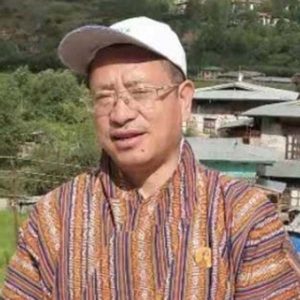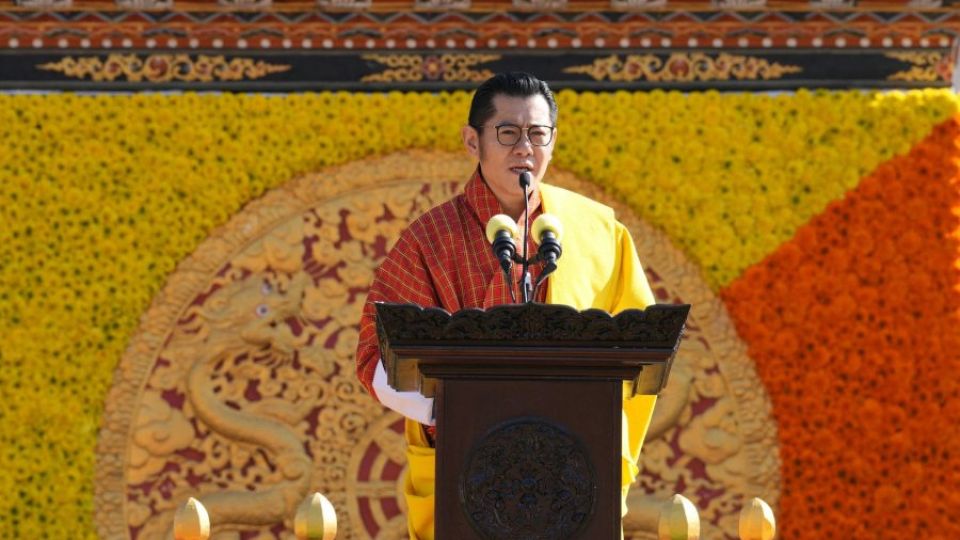December 22, 2023
THIMPU – In a historic move, Bhutan, the serene Himalayan Kingdom of just over 700,000 inhabitants, is poised to embark on a transformative journey, converting its sleepy border town of Gelephu into an expansive international city spanning 1,000 sq. km or 250,000 acres.
His Majesty Jigme Khesar Namgyel Wangchuck unveiled the Gelephu Special Administrative Region (SAR) on the 116th National Day celebrations in Thimphu on December 17, marking a significant milestone in Bhutan’s quest for economic evolution.
The SAR, designed as an autonomous economic hub, will wield the authority to shape crucial laws and policies, fostering an environment conducive to increased foreign investment.
Positioned as a vital economic corridor linking South Asia to Southeast Asia through India’s northeastern states, Gelephu’s transformation is envisioned as a vibrant economic hub anchored in the values of Gross National Happiness (GNH).
His Majesty said that the land connection from Gelephu or Samdrupjongkhar will connect Assam and Northeast Indian states to Myanmar, Thailand, to Cambodia, Laos, Vietnam, Malaysia and Singapore, in Southeast Asia, a home to two billion people.
“We are in a unique position to reap great benefits if we seize the opportunity, make good plans, and work together diligently,” King Khesar said.
Bhutan’s King has long nurtured the vision behind the Gelephu project. The recent announcement also coincides with the country’s elections, as noted by a newspaper editor.
Gelephu, which is located on the Indo-Bhutan border to the south of Bhutan, has a vast plain and shares its border with the Indian state of Assam.
Addressing an audience of over 20,000 at the Changlimithang stadium on Dec 17, King Khesar outlined his plans for a “mindfulness city” in Gelephu — inspired by Bhutan’s spiritual heritage.
The King emphasised that the mindfulness city project would involve substantial investments in public infrastructure, including roads, bridges, and airports.
The establishment of SAR aligns with His Majesty’s vision of creating a vibrant economic hub, according to a former bureaucrat. In the midst of an unprecedented economic transformation in Southeast Asia, Bhutan aims to capitalize on the opportunities presented by the SAR project.
Although project details and timelines remain undisclosed, sources suggest that foreign investment will play a significant role in its realisation.
Expressing personal involvement, His Majesty affirmed, “We will engage the brightest and most competent Bhutanese as well as the best foreign expertise.”
Drawing inspiration from successful economic hubs worldwide, the King emphasised that Bhutan’s economic hub in Gelephu will offer a conducive business environment and compelling incentives.
The inflow of foreign investments is expected to catalyse the construction of offices, residences, schools, hospitals, shops, restaurants, and hotels.
The economic activities generated will benefit all 20 districts, particularly farmers, providing niche markets for various products, according to His Majesty The King.
It will also lead to numerous job opportunities, offering international salary scales and access to advanced technology and skills.
“A flourishing economy means that our people need not always think of migrating, and the government coffers will be in a better state to distribute wealth more evenly to our people,” His Majesty said.
Acknowledging the challenges faced by Bhutanese youth due to limited opportunities at home, the King addressed the issue of mass migration, stating, “Even our professionals – doctors, nurses, engineers, teachers, lawyers, and architects are in a similar position.”
He highlighted the sacrifices made by individuals who venture abroad for better opportunities and emphasized the significance of this undertaking during his reign.
To support the Gelephu project, three immediate priority areas have been identified: energy, connectivity, and skills.
Bhutan aims to expand its energy sector by harnessing various sources, including solar, wind, thermal, and hydropower.
A second international airport will be built in Gelephu, the construction for which will commence next week. It is expected to be completed in two years.
And the government is also committed to improving digital infrastructure, mobile, internet, and satellite connectivity in the age of artificial intelligence (AI).

A panorama view of Gelephu which is located on the Assam-Bhutan border. PHOTO: Lhakpa Quendren of Kuensel
Bhutan’s regional outreach
Over the past year, the King has tirelessly engaged with potential partners, planners, architects, and investors for the Gelephu project.
Royal visits and discussions with key Indian figures, including the Prime Minister and Assam Chief Minister, as well as industrialists like Mukesh Ambani and Gautam Adani, underline the commitment to turning Gelephu into a global gateway — a symbol of Bhutan’s boundless potential and aspirations for a prosperous future.
During His Majesty’s recent visit to India, the Government of India expressed full commitment to improve and expand major roads leading to Bhutan.
Additionally, pledges were made to connect two or three of Bhutan’s border towns with railway lines, enhancing regional connectivity.
Describing the project as an inflection point, a moment of great historical importance, His Majesty underlined the gravity of the initiative.
Engaging with Southeast Asian economies, Bhutan is poised to capitalise on enhanced exports and imports through improved road and air connectivity.
The Gelephu project, propelled by the collaboration of the King, the government, and the people, marks a pivotal chapter in Bhutan’s pursuit of a prosperous and interconnected future.
Gelephu’s resonance of optimism
In response to these developments, Gelephu’s residents are exuding optimism about their town’s metamorphosis.
Chimi Dorji, the proprietor of Kuengacholing Poezokhang said: “Gelephu is about to trade the sleepy border town for an economic supernova! This mindfulness city isn’t just a project; it’s a passport to our brighter future.”
“I can’t wait to see the transformation that will come shortly. Our streets are going to be different, our villages turning into hubs for jobs, and economic opportunities on a global stage – Gelephu’s rising, and we’re all boarding the rocket ship!” he said.
Kamal Pradhan, Vice President of Bhutan Chamber and Commerce Industry (BCCI), sees Gelephu’s evolution as a shift “from paddy fields to prosperity.”
He envisions a future where local products reach global tables, contributing to economic diversification and generating steady income for the youth who choose to stay back.
Dawa Penjor, General Secretary of the Bhutan India Friendship Association, Gelephu Chapter, described His Majesty’s vision as more than a blueprint: “It’s a sunrise painting for our landlocked nation with possibilities.
“We’re trading our yak bells for the clang of opportunity, our prayer flags for the flutter of progress, and our worries for the thrill of building a future where mindfulness meets metropolis. Our excitement is beyond words, as Gelephu is about to become Bhutan’s beating heart, and every one of us is ready to pump it with passion and purpose.”
The writer is the former editor of Kuensel.


